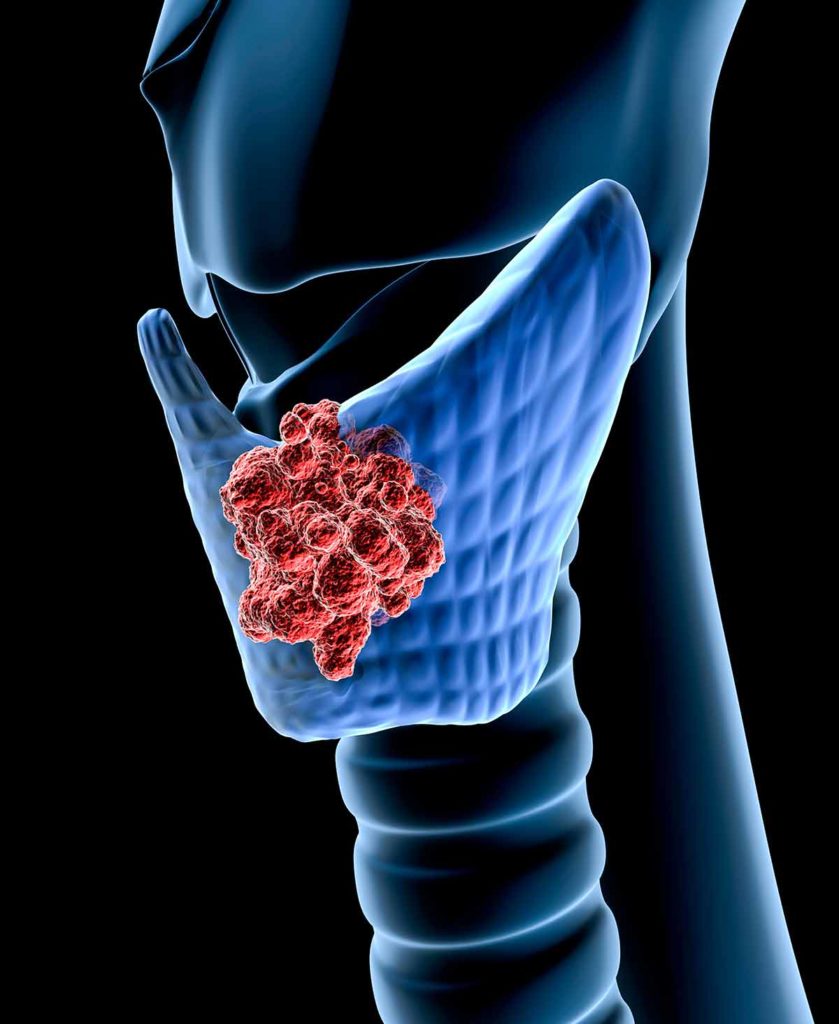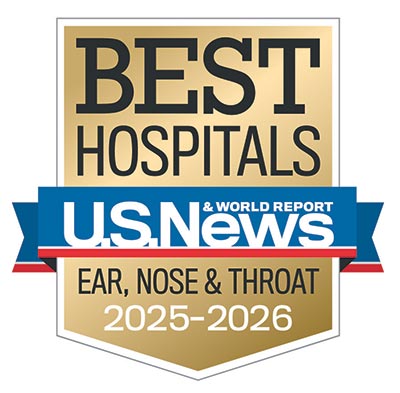Research reveals higher thyroid cancer risk for menopausal women with longer reproductive years
Since 1975, the incidence of thyroid cancer has nearly tripled, and the incidence in women has nearly quadrupled.¹ To help find reasons for the increase, researchers at Penn State Cancer Institute, Penn State College of Medicine and Harvard Medical School performed a retrospective study using one of the nation’s largest women’s health databases.
The study revealed that women who entered menopause at age 45 or older had a higher risk of thyroid cancer compared with women who entered menopause at a younger age. The study also identified a linear trend between later age at menopause and increased risk of thyroid cancer.²
“One of our main goals is to understand the rise in thyroid cancer and locate the real reason for it, and not just blame overdiagnosis,” said head and neck surgeon Dr. David Goldenberg, Professor and Chair of the Department of Otolaryngology – Head and Neck Surgery and a co-author of the study. “We found that the longer the reproductive period a woman had, the more likely she was to develop thyroid cancer.”

The incidence of thyroid cancer has nearly tripled during the past 45 years, and it’s nearly quadrupled in women.
The team was the first granted permission to conduct thyroid cancer research using the Nurses’ Health Study II cohort, one of the largest investigations into the risk factors for major chronic diseases in women. The database includes information collected from 1989 – 2013.³
Goldenberg and his team examined 620 cases of thyroid cancer from the Nurses Health Study II cohort. Eighty-four percent of those cases were confirmed by pathology; the remainder were self-reported. Papillary thyroid cancer accounted for a majority (90%) of cases. Eight percent were follicular thyroid cancer, and 2% were medullary thyroid cancer.
In addition to looking at age at menopause, the team also considered multiple reproductive and hormonal risk factors, including age at menarche, oral contraceptive use, postmenopausal hormone therapy and history of breastfeeding.
The team found no significant association with an increased risk of thyroid cancer due to parity or number of months breastfeeding for either premenopausal or postmenopausal women. “Although age at menarche showed a weak association with thyroid cancer, it was not statistically significant,” Goldenberg said. Oral contraceptive use and postmenopausal hormone therapy also showed no association with thyroid cancer risk.
Goldenberg’s co-authors in the study were Jane Schubart, PhD, associate professor, Departments of Surgery, Medicine and Public Health Science at the College of Medicine; Amber Schilling, Department of Surgery at the College of Medicine; and A. Heather Eliassen, ScD, Department of Medicine, Brigham and Women’s Hospital and Harvard Medical School.
The research builds on prior thyroid cancer risk studies conducted by Goldenberg and other researchers. A study published in 2015 showed a strong association with obesity, Type 2 diabetes mellitus and differentiated thyroid cancer, identifying body mass index as a strong predictive variable.4
While additional studies are needed to further examine root causes for the rise in thyroid cancer incidence, physicians should continue to be vigilant in identifying thyroid cancer. “Early diagnosis is key to successful treatment,” Goldenberg said. “Women should get their annual general and gynecological exam by their doctors, and any mass discovered in the neck should be further evaluated”

David Goldenberg, MD
Chair, Department of Otolaryngology – Head and Neck Surgery
Professor, Departments of Otolaryngology – Head and Neck Surgery, Surgery and Medicine
Steven and Sharon Baron Professor of Surgery
Phone: 717-531-6822
Email: dgoldenberg@pennstatehealth.psu.edu
Fellowship: Head and Neck, Surgical Oncology, Johns Hopkins Hospital, Baltimore
Residency: Head and Neck, Surgical Oncology, Rambam Medical Center, Haifa, Israel
Medical School: Ben Gurion University of the Negev, Beersheba, Israel
Internship: Rotating, Soroka Medical Center, Beersheba, Israel
Connect with David Goldenberg, MD, on Doximity
References
- Davies L, Welch HG. Current thyroid cancer trends in the United States. JAMA Otolaryngol Head Neck Surg. 2014;140(4):317-322. doi:10.1001/jamaoto.2014.1
- Schubart JR, Eliassen AH, Schilling A, Goldenberg D. Reproductive Factors and Risk of Thyroid Cancer in Women: An Analysis in the Nurses’ Health Study II [published online ahead of print, 2021 Apr 30]. Womens Health Issues. 2021;S1049-3867(21)00031-1. doi:10.1016/j.whi.2021.03.008
- Bao Y, Bertoia ML, Lenart EB, et al. Origin, Methods, and Evolution of the Three Nurses’ Health Studies. Am J Public Health. 2016;106(9):1573-1581. doi:10.2105/AJPH.2016.303338
- Oberman B, Khaku A, Camacho F, Goldenberg D. Relationship between obesity, diabetes and the risk of thyroid cancer. Am J Otolaryngol. 2015;36(4):535-541. doi:10.1016/j.amjoto.2015.02.015

